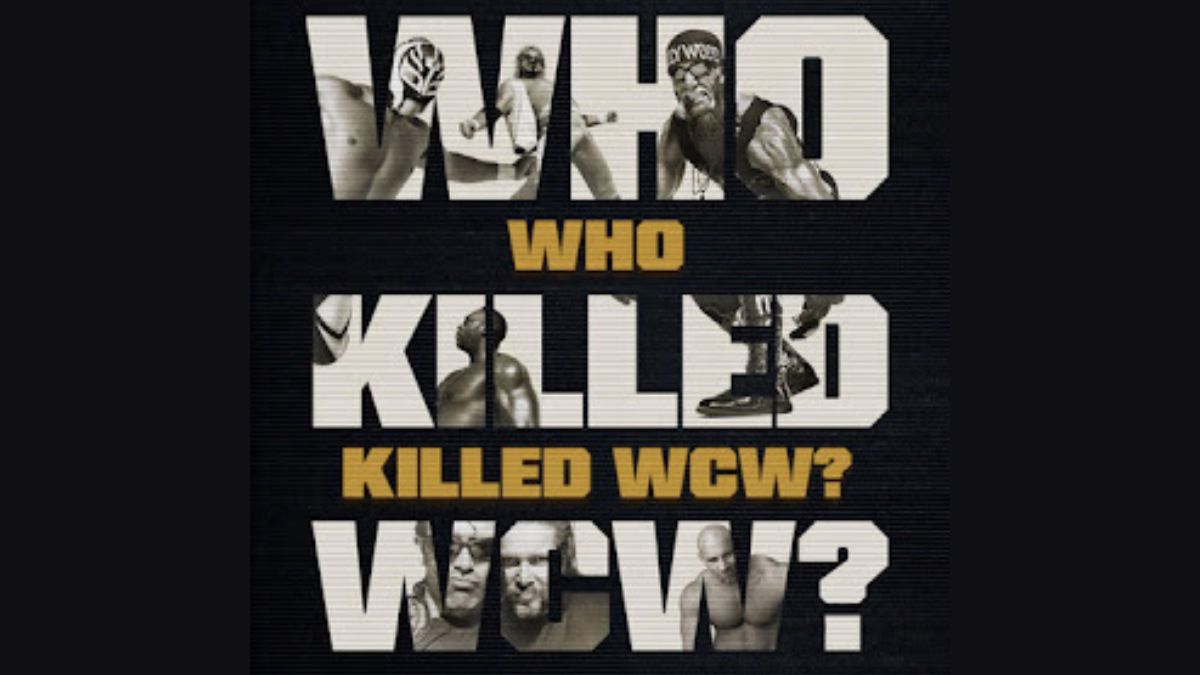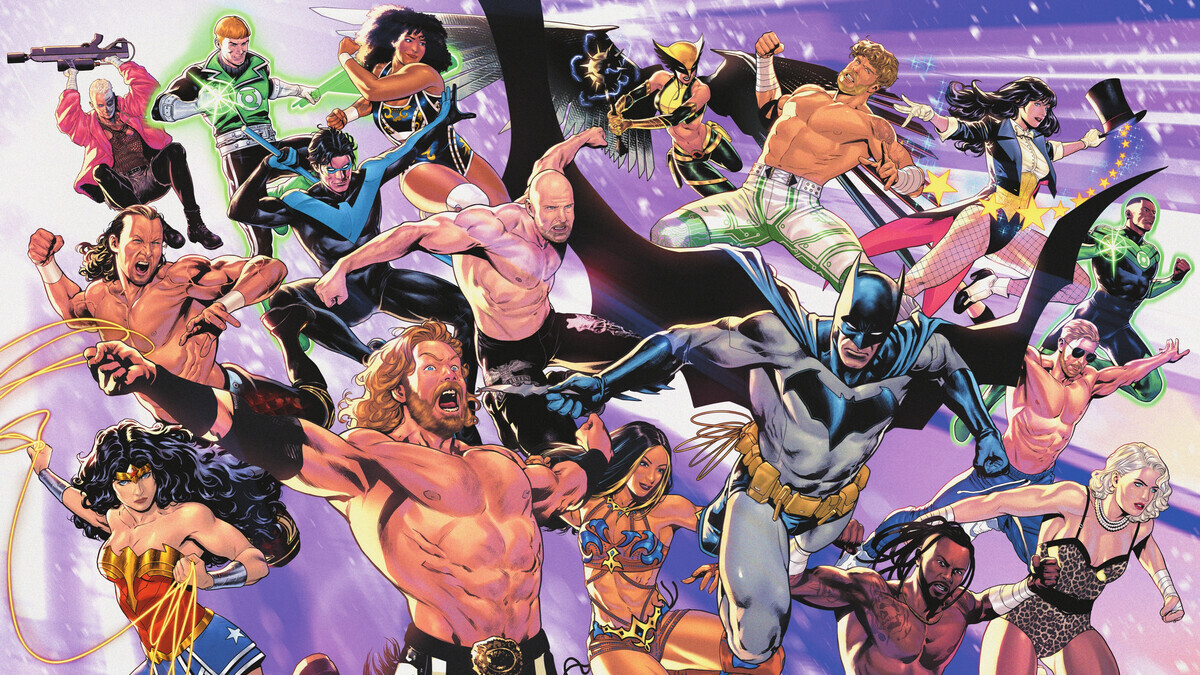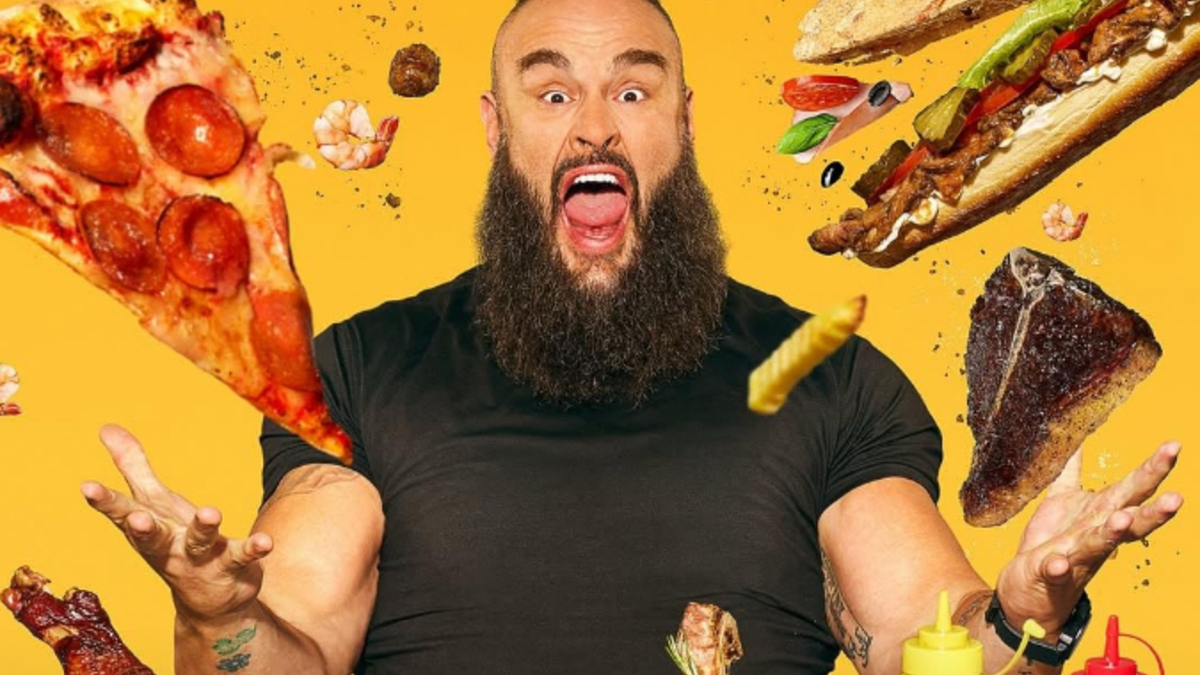Bro, third ‘Who Killed WCW?’ all Russo and bad booking
World Championship Wrestling devolves from a creative mess into a political minefield as 1999 enter into the year 2000 in episode three of Who Killed WCW?
The show opened with senior vice president Eric Bischoff officially gone from the company and Bill Busch working in an interim position in Bischoff’s role.
About a month after Busch was in charge, he decided to hire Vince Russo and Ed Ferrera – two important creative pieces from the World Wrestling Federation – to come to WCW and assume the booking position beginning in October of 1999.
“He [Busch] called me up and said we’ve made the best hiring decision ever – we’ve hired Vince Russo,” said Dick Cheatem, group financial controller for Turner Sports.
Bret Hart explained that he was told by Busch that WCW lured a genius away from WWF.
The overall feeling about the hiring from the talent interviewed was positive, as Diamond Dallas Page, Konnan and Booker T all praised the move.
Russo’s backstory was then explained, which was necessary but nothing that hasn’t been told thousands of times before. He was initially a WWF magazine writer, earned a role on the creative side and was a part of the WWF’s rise in the Attitude Era.
Russo left the company when Smackdown started because the workload was too much and Vince McMahon was not planning to increase his pay for the additional writing work that show would bring.
The WCW Nitro book author, Guy Evans, made an excellent point in that there was a lot of early enthusiasm from fans when Russo was first brought in. WCW had a mostly terrible first nine months in 1999 and the promotion felt incredibly stale. Fans online were mostly excited for a new change in direction.
The WCW midcard talent at the time was then highlighted, with the talking heads rightfully talking up how skilled some of those performers were. The 1998 WCW talent roster is arguably the most talented of all time and much of that was still remaining in 1999.
Konnan stated that Bischoff’s boys (the older main event talent) were not on board with Russo and that would be a problem continually popping up over the next few years.
Russo rightly stated that the TV ratings did go up over his first three months. However, he also failed to mention the plummeting of pay-per-view buyrates over that time period. The drop year-over-year was massive. Starrcade 1999 dipped to 145,000 buys from 460,000 in 1998. The October and November pay-per-view numbers also fell significantly. Part of Russo’s job was to get fans to buy those shows and he was never able to do that.
Brad Siegel, former president for Turner Sports, agreed that the first three-month run for Russo did see increased numbers, but the risqué content negated that growth.
“There was a little positive effect on the ratings but not much and it wasn’t as advertiser friendly,” he said.
Russo stated that his job was to appeal to the largest possible audience. Konnan quipped that Russo would try to attract those who weren’t already watching, but then questioned why a casual fan would want to watch a Judy Bagwell on a pole or piñata match. (Konnan was mistaken on one point, as it was a Judy Bagwell on a forklift match. I was there in person for WCW New Blood Rising 2000 in Vancouver and witnessed that match in-person).
Kevin Sullivan said WCW became a comedy show and Booker T added that it seemed like Russo was entertaining himself. Hart and Bill Goldberg finally agreed on something, with Hart calling Russo an idiot and Goldberg referring to Russo as a shit stain.
WCW producer Neal Pruitt made a great point by explaining that Vince McMahon was a buffer for Russo in the WWF, whereas in WCW, Russo had the final say and sometimes his ideas needed that editor.
Russo could tell that political forces were working against him early, as he noted that he would see Sullivan and JJ Dillon talking secretively and then disperse when Russo arrived.
Early into the year 2000 saw Busch tell Russo that they wanted him to be a part of a booking committee for WCW. Russo told him that wasn’t part of his contract and that he wouldn’t participate that way. Russo told them that he would go home and continue to be paid until they decided what to do with him so that’s what they did.
Meanwhile, Sullivan took over the creative role and the midcard talent was unhappy immediately.
Sullivan tried to please them by giving Chris Benoit the belt at WCW Souled Out 2000 in January, but the next day saw Benoit, Eddie Guerrero, Perry Saturn and Dean Malenko ask to be released. Busch granted them their release without knowing that they would show up on WWF Monday Night Raw the following week. Sullivan didn’t seem to care that the four talents left.
“They were such an integral part of the show, but they weren’t Nash, Hall, Hogan or Macho,” Sullivan said. “They could have been, but they weren’t.”
That quote exemplifies the stupidity of WCW at that time. They allowed four amazing talents to walk over to the competition. In my opinion, the Radicalz leaving was the final nail in the coffin for WCW. You could always count on WCW to have quality wrestling in the midcard and losing those four took an enormous chunk out of that roster.
The show didn’t really focus much on the disastrous Sullivan booking period from January to April, which featured directionless shows and sinking rates. Losing the Radicalz combined with this uninspired era was a death blow and many fans didn’t return.
Konnan, Booker and DDP all recognized what a big loss the Radicals were. Konnan also pointed out that if management had let those talents, and other midcard stars, work with the main eventers that maybe WCW would still be in business.
Bischoff stated that he was watching RAW at the time and thought that WCW had hit rock bottom after the Radicalz appeared. He also correctly predicted that WCW would soon give him a call to return.
Siegel decided to bring Bischoff back and gave him a new contract. Bischoff said that the contract meant that he would only have to report to Siegel. Russo stated that Siegel never said that Bischoff was his boss and that Siegel wanted them to work together. Siegel said his memories were hazy of that time period.
In April, the New Blood vs. Millionaires Club storyline was launched when the Russo and Bischoff era began. It was an idea that had some potential, but was executed poorly.
The entire Ready to Rumble movie and David Arquette storyline was discussed, with Russo and Bischoff both defending the decision to put the world title on Arquette. DDP, Booker, Konnan, Evans and Arquette himself all said that it was a bad idea.
Russo and Bischoff both stated that they would not change that storyline direction. Russo brought up the fact that the news made the front page of the USA Today.
The rise of Booker T is highlighted next and Booker admitted that he felt he would never be a world champion because he was black.
The debacle that was Bash at the Beach 2000 was then discussed, as Bischoff accused Russo of going into business for himself after Hulk Hogan used his creative control to defeat Jeff Jarrett. This entire mess was covered in the Dark Side of the Ring episode, but basically, Bischoff did not trust Russo after that decision.
Russo decided to allow Hogan to “beat” Jarrett and then created a new title match after Hogan and Bischoff, which saw Booker T win the title. Russo said that Siegel wanted him as head of creative and felt within his rights to make that change.
Bischoff stated that he and Hogan were blindsided and were extremely upset. This entire mess wasn’t a good look for anyone involved, but Bischoff seemed more concerned with the happiness of Hogan than the company. Russo ultimately rewarded a hard-working wrestler with a deserving big win but the damage was done.
Evans rightly asked why the audience would buy the next big show when things were so chaotic and made such little sense. Bischoff seemed bitter as he was sent home following Bash at the Beach and Russo remained on the creative team. Hogan never again appeared for WCW.
With Bischoff and Hogan gone, a new booking committee was formed that summer but Russo began to get more and more involved on-screen. He even booked himself to win the world title.
“As an on-air character I felt I was better than 80 per cent of that roster,” Russo said, in a hilariously un-self-aware statement.
Russo then brought up the injuries that he had suffered while wrestling and believed that Goldberg injured him on purpose. Goldberg denied that claim. Russo left for good in October of 2000.
“That time period reminds me of how much I hate the business,” he said. “And how much it damaged me emotionally.”
Of course, he would then go on to work for TNA a few years later.
The show closed with Russo’s departure and more uncertainty for the struggling promotion at the end of the year 2000.
There was a lot to cover on this show and I thought most of it was handled well, as it had been for the previous two episodes.
However, as mentioned earlier, I do think they downplayed the damage that the Sullivan booking run did. Ratings were marginally up for Russo’s first run and that momentum may have continued if he had a chance. We do know definitively that whatever Sullivan booked did not work.
The loss of the Radicalz was properly discussed, but I found it surprising that the losses of Chris Jericho and The Giant (Big Show) were not brought up at all. Jericho and Giant were two young and homegrown WCW stars who chose to leave.
They were also mostly handled well early in their respective WCW careers and would go on to be huge stars for the WWF. Jericho especially had a ton of untapped potential and was someone that WCW fans were dying to see get a push.
Those two talent departures combined with the Radicalz was a complete gutting of the amazing WCW midcard in 1998. They never had that quality of reliable talent in the midcard again.
One person I wish they had spoken to was Ferrera. He was around in the WWF and remained on the WCW creative team when he and Russo were first hired until the end, I believe. His perspective could have brought some balance to the show.
Next week is the series finale and will look at the sale and closure of WCW.
RELATED LINKS
- June 26, 2024: ‘Who Killed WCW?’ ends without a true answer
- June 12, 2024: Goldberg steamrolls through second ‘Who Killed WCW?’ episode
- June 10, 2024: Ric Flair blames this trio for the death of WCW
- June 5, 2024: First part of ‘Who Killed WCW?’ pretty familiar




